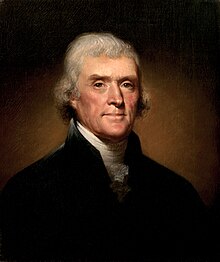- Northwest Ordinance
- Kentucky and Virginia Resolutions
- End of Atlantic slave trade
- Missouri Compromise
- Tariff of 1828
- Nat Turner's Rebellion
- Nullification crisis
- End of slavery in British colonies
- Texas Revolution
- United States v. Crandall
- Gag rule
- Commonwealth v. Aves
- Murder of Elijah Lovejoy
- Burning of Pennsylvania Hall
- American Slavery As It Is
- United States v. The Amistad
- Prigg v. Pennsylvania
- Texas annexation
- Mexican–American War
- Wilmot Proviso
- Nashville Convention
- Compromise of 1850
- Uncle Tom's Cabin
- Recapture of Anthony Burns
- Kansas–Nebraska Act
- Ostend Manifesto
- Bleeding Kansas
- Caning of Charles Sumner
- Dred Scott v. Sandford
- The Impending Crisis of the South
- Panic of 1857
- Lincoln–Douglas debates
- Oberlin–Wellington Rescue
- John Brown's raid on Harpers Ferry
- Virginia v. John Brown
- 1860 presidential election
- Crittenden Compromise
- Secession of Southern states
- Peace Conference of 1861
- Corwin Amendment
- Battle of Fort Sumter


The Kentucky and Virginia Resolutions were political statements drafted in 1798 and 1799 in which the Kentucky and Virginia legislatures took the position that the federal Alien and Sedition Acts were unconstitutional. The resolutions argued that the states had the right and the duty to declare unconstitutional those acts of Congress that the Constitution did not authorize. In doing so, they argued for states' rights and strict construction of the Constitution. The Kentucky and Virginia Resolutions of 1798 were written secretly by Vice President Thomas Jefferson and James Madison, respectively.
The principles stated in the resolutions became known as the "Principles of '98". Adherents argued that the states could judge the constitutionality of federal government laws and decrees. The Kentucky Resolutions of 1798 argued that each individual state has the power to declare that federal laws are unconstitutional and void. The Kentucky Resolution of 1799 added that when the states determine that a law is unconstitutional, nullification by the states is the proper remedy. The Virginia Resolutions of 1798 refer to "interposition" to express the idea that the states have a right to "interpose" to prevent harm caused by unconstitutional laws. The Virginia Resolutions contemplated joint action by the states.
The Resolutions were produced primarily as campaign material for the 1800 United States presidential election and had been controversial since their passage, eliciting disapproval from ten state legislatures. Ron Chernow assessed the theoretical damage of the resolutions as "deep and lasting ... a recipe for disunion".[1] George Washington was so appalled by them that he told Patrick Henry that if "systematically and pertinaciously pursued", they would "dissolve the union or produce coercion".[1] Their influence reverberated right up to the Civil War and beyond.[2] In the years leading up to the Nullification Crisis, the resolutions divided Jeffersonian democrats, with states' rights proponents such as John C. Calhoun supporting the Principles of '98 and President Andrew Jackson opposing them. Years later, the passage of the Fugitive Slave Act of 1850 led anti-slavery activists to quote the Resolutions to support their calls on Northern states to nullify what they considered unconstitutional enforcement of the law.[3]
- ^ a b Chernow, Ron. "Alexander Hamilton". 2004. p587. Penguin Press.
- ^ Knott. "Alexander Hamilton and the Persistence of Myth". p48
- ^ See Unconstitutionality of the Fugitive Act, by Byron Paine (1854).